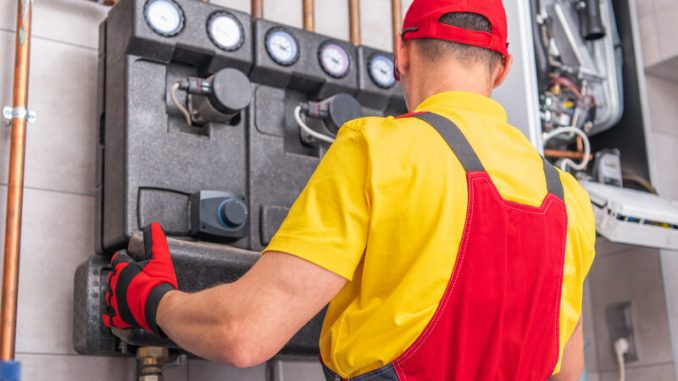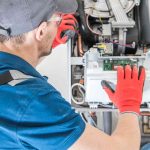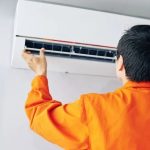
Steam boilers are critical components in various industrial and residential settings. However, they are prone to a range of issues that can disrupt their operation. In this comprehensive guide, we’ll address common steam boiler problems and provide effective solutions to ensure your system runs efficiently.
Identifying Common Steam Boiler Issues
1. Inconsistent Heat Output
Inconsistent heat output is a frequent problem faced by steam boiler users. This could be due to blockages in the system, faulty thermostat controls, or uneven water distribution. Regular maintenance and checking of thermostats and water levels can mitigate this issue.
2. Water Leakage
Water leakage in steam boilers can lead to significant inefficiencies and damage. Causes include corroded pipes or a damaged boiler seal. Regular inspections for rust and timely replacement of worn parts are essential preventative measures.
3. Unusual Noises
A well-functioning steam boiler operates quietly. If you notice banging, whistling, or gurgling noises, it’s often a sign of air in the system, low water pressure, or lime scale buildup. Bleeding radiators and descaling can effectively address these noise issues.
4. Boiler Keeps Shutting Off
Frequent shutdowns can be caused by low water pressure, a faulty thermostat, or blockages in the boiler. Maintaining optimal water pressure and cleaning blockages can ensure continuous operation.
5. Radiator Malfunction
If radiators are not heating up properly, it could be due to trapped air or sludge buildup. Bleeding radiators and flushing the system can restore their efficiency.
6. Pilot Light Issues
A malfunctioning pilot light might be due to a broken thermocouple or a clogged pilot orifice. Regular cleaning and component checks can prevent this problem.
7. Pressure Problems
Incorrect pressure levels can hinder a boiler’s performance. Regular monitoring and adjustments of the pressure gauge can ensure the system operates at the correct pressure.
Advanced Troubleshooting Techniques
Advanced issues such as electrical faults or significant component failures require professional attention. Scheduled inspections and maintenance from certified technicians can prevent these complex problems.
Optimizing Steam Boiler Efficiency
Maximizing the efficiency of your steam boiler involves regular maintenance, timely repairs, and understanding its operation. Implementing energy-saving practices and upgrading to modern, efficient models can also enhance performance.
Enhancing Safety Measures in Steam Boiler Operations
Safety is paramount when dealing with steam boilers. To enhance safety, regular inspections for wear and tear, and adherence to safety protocols are essential. Installing safety valves, pressure gauges, and emergency shut-off switches can prevent accidents. Additionally, training personnel in safe operation practices and emergency response procedures minimizes the risk of mishaps. It’s crucial to never ignore safety warnings or malfunction signs, as these can lead to hazardous situations.
Importance of Water Quality in Boiler Performance
The quality of water used in steam boilers significantly impacts their performance and lifespan. Impurities in water, such as minerals and sediments, can lead to scaling and corrosion, reducing efficiency and increasing the likelihood of breakdowns. Implementing water treatment solutions, such as deaeration or chemical treatment, can prevent these issues. Regularly testing water quality and adjusting treatment methods accordingly ensures the boiler operates optimally.
The Role of Technology in Streamlining Boiler Maintenance
Advancements in technology have revolutionized steam boiler maintenance. Automated monitoring systems can now detect issues early, reducing downtime and repair costs. These systems provide real-time data on boiler performance, enabling predictive maintenance. Upgrading to smart controls and sensors also allows for remote monitoring and control, enhancing convenience and efficiency. Embracing these technological innovations is key to maintaining a reliable and efficient steam boiler system.
Key Takeaways
- Regular maintenance is crucial for preventing and solving common steam boiler problems.
- Inconsistent heat output often stems from blockages or faulty controls.
- Water leakage should be addressed immediately to prevent further damage.
- Unusual noises can indicate air in the system or lime scale buildup.
- Radiator inefficiencies often result from trapped air or sludge.
- Pilot light and pressure issues require routine checks and adjustments.
- Professional assistance is essential for complex electrical or component issues.
Addressing common steam boiler problems promptly and effectively is crucial for maintaining system efficiency and longevity. By recognizing these issues early and implementing the suggested solutions, you can ensure your steam boiler operates at its best.
How Can I Identify if My Steam Boiler is Malfunctioning?
To identify a malfunctioning steam boiler, look for signs such as inconsistent heat output, unusual noises, water leakage, frequent shutdowns, and issues with the pilot light or pressure gauge. Inconsistent heating could indicate blockages or faulty controls, while noises like banging or whistling often signal air in the system or lime scale buildup. Water leakage points to possible corrosion or seal damage. If the boiler frequently shuts off, this could be due to low water pressure or blockages. Pilot light and pressure problems might stem from component malfunctions. Recognizing these symptoms early is key to timely and effective troubleshooting.
What Regular Maintenance Does a Steam Boiler Require?
Regular maintenance for a steam boiler includes inspecting for leaks, corrosion, and wear and tear; cleaning blockages in the system; checking and adjusting the pressure gauge; and ensuring the pilot light and thermostat are functioning correctly. It’s also essential to bleed radiators to remove trapped air and flush the system to clear sludge buildup. Scheduling annual professional inspections is crucial for comprehensive maintenance, as certified technicians can detect and resolve complex issues. Maintaining water quality through treatments like desecration or chemical additives also forms a critical part of the maintenance routine to prevent scaling and corrosion.
Why is My Steam Boiler Making Noises, and How Can I Fix It?
Noises in a steam boiler, such as banging, whistling, or gurgling, typically indicate air trapped in the system, low water pressure, or lime scale buildup. To fix these issues, start by bleeding the radiators to release any trapped air. If the problem persists, check the water pressure and adjust it if it’s too low. For lime scale buildup, a descaling procedure might be necessary. Regularly flushing the system can prevent these problems. If the noises continue despite these measures, it’s advisable to consult a professional, as it could indicate a more serious underlying issue.
What Should I Do if My Boiler’s Pilot Light Keeps Going Out?
If your boiler’s pilot light keeps going out, it may be due to a faulty thermocouple, a clogged pilot orifice, or issues with the gas supply. First, try cleaning the pilot orifice to remove any blockages. If this doesn’t resolve the issue, check the thermocouple, which might need replacing if it’s faulty. Ensuring there’s a consistent gas supply is also crucial. If you’re not experienced with gas appliances, it’s safest to call a certified technician for this task. Regular cleaning and maintenance can prevent these issues from occurring.
How Can I Improve the Efficiency of My Steam Boiler?
Improving the efficiency of your steam boiler involves regular maintenance, such as cleaning blockages, maintaining optimal water quality, and ensuring all components are in good working order. Upgrading to more efficient models or retrofitting your current boiler with advanced controls and sensors can also enhance efficiency. Implementing energy-saving practices, such as insulating pipes and using programmable thermostats, contributes significantly. Regularly monitoring and adjusting the pressure and ensuring the boiler is properly sized for your needs are other key steps. Professional energy audits can provide personalized recommendations for maximizing your boiler’s efficiency.





